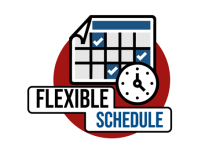



BASIC USER
You can understand and use familiar everyday expressions and very basic phrases to satisfy basic practical needs (buying,eating,…).
You are capable to introduce yourself and others and you can ask and answer questions about personal details such as where you/they live, people you/they know and things you/they have. You can interact in a simple way if the other person talks slowly and clearly and is prepared to help.
Can understand sentences and frequently used expressions related to areas of most immediate relevance (e.g. very basic personal and familyinformation, shopping, local geography, employment).
Can communicate in simple and routine tasks requiring a simple and direct exchange of information on familiar and routine matters.Can describe in simple terms aspects of their background, immediate environment and matters in areas of immediate need.
INDEPENDENT USER
Can understand the main points of a clear speech or text about familiar matters related to work, school, leisure, etc.
Can deal with most situations likely to arise while traveling in an area where the language is spoken. Can produce simple connected text on topics that are familiar or of personal interest. Can describe experiences and events, dreams, hopes and ambitions and briefly give reasons and explanations for opinions and plans.
Can understand the main ideas of a complex text on both concrete and abstract topics, including technical discussions in their field of specialization. Can interact with a degree of fluency and spontaneity that makes regular interaction with native speakers quite possible without difficulty for them or the learner.
Can produce clear, detailed texts on a wide range of subjects and explain a viewpoint on a topical issue giving the advantages and disadvantages of various options.
EXPERT USER
Can understand a wide range of demanding, long sentences, and recognize implicit meaning. Can express ideas fluently and spontaneously without needing to search for expressions. Can use language flexibly and effectively for social, academic and professional purposes. Can produce clear, well-structured, detailed text on complex subjects, showing controlled use of organizational patterns, connectors and cohesive devices.
Our team is made up of highly qualified teachers and tutors, click and get to know each of them

Grammar tips
French levels
History of French



Very good experience, expected results
My experience learning French beginning from nothing with Francais nouvelle vie has been incredible. I recommend it 100% if you want to progress and make proper use of your time in learning French, even if you are in a hurry to learn it, with a teacher just for you is the best way to do it.
I will always recommend Carolina .
Merci/Thank you!
Frances para presentar entrevistas de trabajo.
obtener y presentar una entrevista de trabajo no es facil, las posibles preguntas y respuestas, los nervios, pero hacerlo en frances es todo un reto, gracias a Français Nouvelle Vie y sus docentes, me orientaron para hacer mi CV, prepararme para poder responder profesionalmente, tener la oportunidad de participar en las misiones de recrutamiento. muchas gracias a Carolina y Nicolas.
Una academia muy completa
Llevo más de un mes en el instituto Français Nouvelle Vie en donde he logrado aprender francés con una estructura completa y diferente, me gusta mucho el equipo de trabajo

































